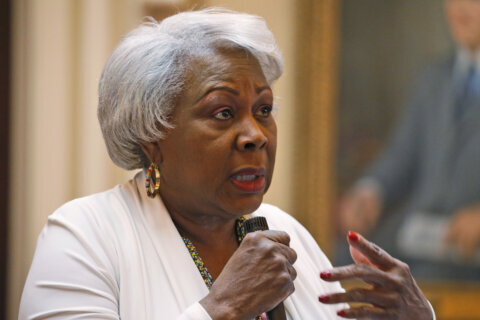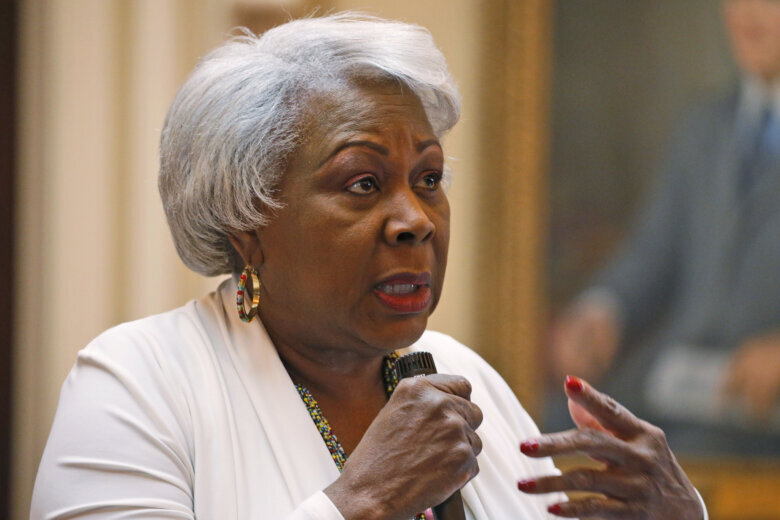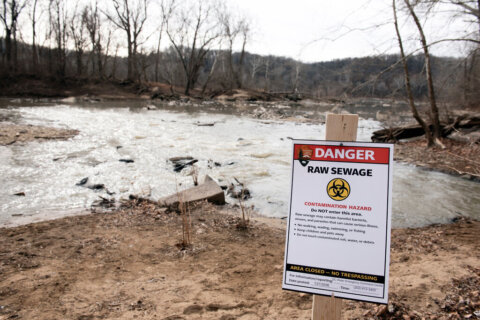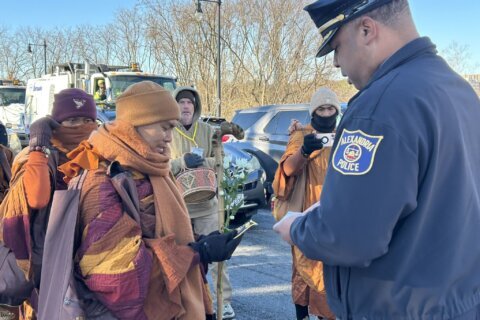
Metro funding is absent from the Virginia Senate’s budget plan, but the leader of a Washington regional government group is “confident the bills will be paid” and that Metro can “move forward.”
Clark Mercer, executive director of the Metropolitan Washington Council of Governments, explained that Virginia’s contribution to Metro would total $130 million — $65 million from localities and $65 million from the Commonwealth.
Mercer said the fact that funding for Metro is in the House budget version shows that Virginia’s contribution toward the transit system is “clearly a priority,” but that in the Virginia General Assembly the funding discussion is part of a process that includes “a series of negotiations.”
Sen. L. Louise Lucas is the Chair of the Virginia Senate Finance Committee and has derided the plan to build an arena in Alexandria to house the Washington Capitals and Wizards as “the #GlennDome” on social media. Part of the plan for a sports and entertainment complex includes an overhaul of the Metro station at Potomac Yard.
As Metro faces down a projected deficit of $750 million, the transit agency has asked D.C., Maryland and Virginia for additional contributions to avoid “drastic cuts.” Without the $130 million from Virginia, for example, Mercer told WTOP, “It could conceivably effect its neighbors’ contributions and everything would have to be readjusted.”
But Mercer said the news that Metro General Manager Randy Clarke met with Sen. Lucas Tuesday “was a great sign” of progress in the funding picture for the transit system.
I know how critical Metro is to the Virginia economy and we will continue to work with them on a long term plan to ensure they can survive for many decades to come. https://t.co/np246N1TLH
— L. Louise Lucas (@SenLouiseLucas) February 20, 2024
In a post on the social media platform X, Lucas wrote “I know how critical Metro is to the Virginia economy and we will continue to work with them on a long-term plan to ensure they can survive for many decades to come.”
The senator’s post included an earlier post from Clarke who thanked Lucas and wrote, “Appreciate you wanting to discuss the #wmata longterm funding model so we can be even more effective getting people to jobs, healthcare and education opportunities.”
D.C. has agreed to $200 million in Metro funding for next year, while Maryland has pledged $150 million, said Mercer.
One thing that all parties seem to agree on is the need for a change to the current funding formula. Mercer said, “I think we want a world-class transit system in D.C. and in order to have one, we’re going to need kind of predictable funding.”
Mercer said the members of the Council of Governments “are pushing hard to make sure that the next two years of funding is secure for Metro,” and then, an examination of long-term funding could begin.
“Thirty percent of the ridership is the federal government, perhaps they should be paying for some ongoing operations as well,” he said.
Get breaking news and daily headlines delivered to your email inbox by signing up here.
© 2024 WTOP. All Rights Reserved. This website is not intended for users located within the European Economic Area.









